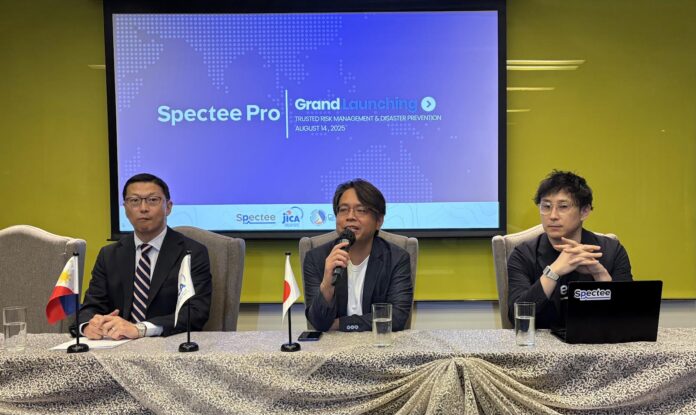The chief representative of the Japan International Cooperation Agency (JICA), Takashi Baba, on Thursday declared the 2023 disaster resilience feasibility study effective and the program participants have passed muster and graduated.
The program relates to the multiyear study on using technology, particularly artificial intelligence or AI, to deal with crisis situations and come up with practical, timely and effective solutions to protect life and minimize damage to property.
The program, advanced by the Tokyo-based company Spectee Inc. and supported by JICA, presented the crisis and disaster monitoring technology designed to respond swiftly and decisively to emergencies. The program, crafted and tested in disaster-prone Philippines, will eventually be offered as a paid service on subscription basis.
“But for now, the Spectee project can stand on its own,” Baba told reporters in a briefing at the Novotel Hotel in Quezon City.
JICA supports programs that advance or resolve Philippine issues requiring funding typically costing more or less 200 million yen, he noted.
As an AI-driven, real-time disaster and crisis management tool, the service will be offered on subscription basis, according to Satoshi Negoro, chief operating officer and head of global business at Spectee Inc.
The service will be offered on B2G (government) or B2B (business) basis and should cost from P40,000 to P50,000 a month. Epson Philippines and GMA Network already use the paid service at the moment, Negoro said.
According also to Negoro, the focus for now is to widen the subscription base in the government sector, particularly the various local government units whose constituents are most exposed to some kind risk or other like floods and landslides.
“Later we will offer the service to businesses but for now we focus on B2G,” he said.
At the moment the company is seeking feedback from users to further refine the technology prompted by the great East Japan earthquake in 2011.







